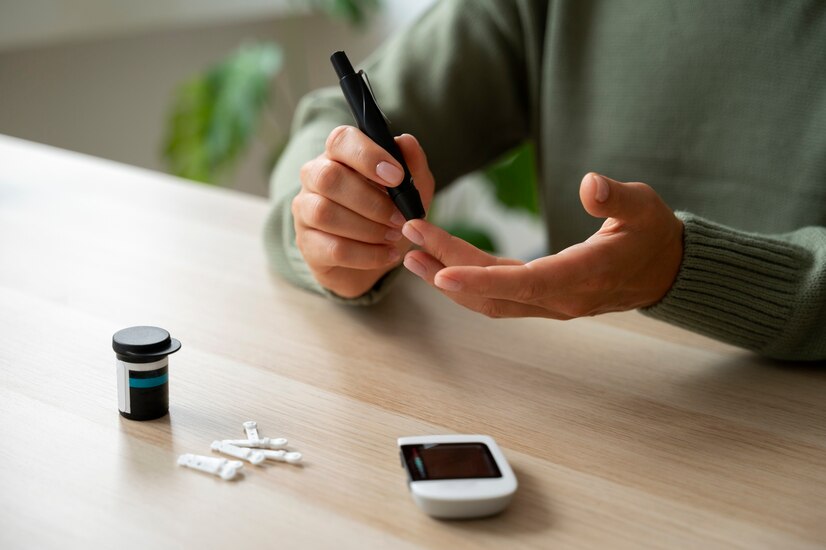CBD for Diabetes: Managing Blood Sugar and Related Issues
Table of Contents
In recent years, CBD (cannabidiol) has gained widespread attention for its potential to support a variety of health conditions — from chronic pain and anxiety to inflammation and sleep disorders. But can it really help people manage diabetes and its complications? The idea of using CBD for diabetes is gaining momentum, as more individuals explore natural ways to complement their medical routines.
In this in-depth blog post, we’ll explore how cbd roll on for pain may aid in managing blood sugar, supporting inflammation control, and improving overall wellness for people with Type 1 and Type 2 diabetes. We’ll also discuss emerging research, safety considerations, and how to choose the right CBD products.
Understanding Diabetes and Its Challenges

Diabetes is a chronic condition that affects how the body uses glucose (blood sugar). It occurs when the pancreas does not produce enough insulin or the body cannot use insulin effectively. There are two main types:
- Type 1 Diabetes: An autoimmune condition where the body attacks insulin-producing cells.
- Type 2 Diabetes: The more common form, often linked to lifestyle and insulin resistance.
Diabetes can lead to complications such as nerve damage, cardiovascular issues, inflammation, slow wound healing, and high oxidative stress.
How Can CBD Help with Diabetes?
While CBD for diabetes is not a cure, it may offer several supportive benefits. CBD interacts with the endocannabinoid system (ECS) — a network of receptors involved in regulating metabolism, immune function, and inflammation — all of which are crucial in diabetes management.
🌿 1. Regulating Blood Sugar Levels
Early studies suggest that CBD may influence how the body processes sugar. Though not a direct hypoglycemic agent, CBD could help stabilize glucose levels by reducing insulin resistance and improving metabolic function.
🌿 2. Reducing Inflammation
Inflammation plays a significant role in the development of insulin resistance. CBD is known for its anti-inflammatory properties, which may help lower systemic inflammation and support better glucose control.
🌿 3. Protecting Nerve Health
Diabetic neuropathy (nerve damage) is a common complication. CBD’s neuroprotective and pain-relieving effects may help ease nerve pain, tingling, or burning sensations in hands and feet.
🌿 4. Improving Sleep and Mood
Stress, anxiety, and poor sleep can spike blood sugar levels. CBD has been widely used for promoting relaxation and better sleep, which can indirectly benefit diabetes management.
🌿 5. Supporting Weight Management
Although research is ongoing, some findings suggest that CBD might aid in appetite control and fat browning — both of which are helpful for individuals trying to manage Type 2 diabetes through weight loss.
What Does the Research Say?
- A 2016 study published in Diabetes Care explored the effect of CBD on patients with Type 2 diabetes and found modest improvements in insulin sensitivity.
- Another study on animal models found that CBD reduced pancreatic inflammation, a factor in the development of Type 1 diabetes.
- Research in Neuropharmacology showed that CBD might reduce oxidative stress and protect against diabetic complications.
While these findings are promising, more large-scale human studies are needed to make conclusive claims about CBD’s role in diabetes care.
Best Ways to Use CBD for Diabetes
Here are a few ways to incorporate CBD for diabetes into your wellness routine:
✅ CBD Oil or Tinctures
- Fast-absorbing and easily adjustable dosage.
- Ideal for systemic benefits like inflammation reduction and mood regulation.
✅ CBD Capsules
- Great for consistent daily use, especially for blood sugar support and general wellness.
✅ Topical CBD
- Effective for localized pain relief in cases of diabetic neuropathy or joint stiffness.
✅ CBD Edibles or Gummies
- Slow-release, discreet, and a good choice for long-lasting effects, although watch out for added sugar.
✅ CBD Isolate or Broad-Spectrum Products
- Preferable for those who need to avoid THC entirely, especially if taking medications.
Is CBD Safe for Diabetics?
CBD is generally well-tolerated, but diabetics should consider the following:
- Medication Interactions: CBD may interact with drugs metabolized by the liver (CYP450 enzymes), including metformin or insulin. Always consult your doctor before use.
- Quality Matters: Choose third-party tested CBD from reputable brands.
- Sugar-Free Options: Opt for sugar-free edibles or oils to avoid blood sugar spikes.
5 Frequently Asked Questions (FAQ)
1. Can CBD lower blood sugar levels directly?
Not exactly. CBD does not directly reduce glucose but may help regulate levels through its effects on inflammation, insulin sensitivity, and metabolism.
2. Is CBD safe to use alongside diabetes medications?
CBD may interact with certain medications. It’s important to talk with your healthcare provider before adding CBD to your treatment plan.
3. What dosage of CBD is recommended for diabetes?
There’s no one-size-fits-all dose. Start low (10–20 mg/day), monitor your response, and adjust slowly.
4. Can CBD help with diabetic nerve pain?
Yes, many users report relief from neuropathy symptoms, and studies show that CBD may help reduce nerve-related inflammation and pain.
5. Will CBD make me feel high or impair my ability to function?
No. CBD is non-psychoactive and does not cause a high. Make sure your product contains less than 0.3% THC or is THC-free.
Final Thoughtsidea of using CBD for diabetes is gaining momentum, as more individuals explore natural ways to complement their medical routines.
CBD for diabetes is not a substitute for prescribed medications or a healthy lifestyle, but it may offer supportive benefits when used correctly. From reducing inflammation to aiding in nerve pain relief and improving sleep and mood, CBD can be a valuable addition to a comprehensive diabetes management plan.
As with any supplement, it’s essential to consult your healthcare provider, monitor your response, and use high-quality, lab-tested products. With the right approach, CBD might be the natural boost you need to take better control of your health.







